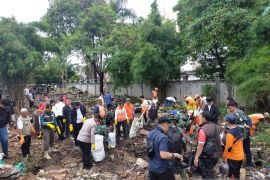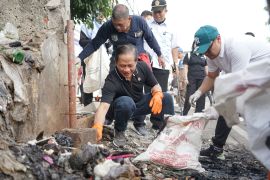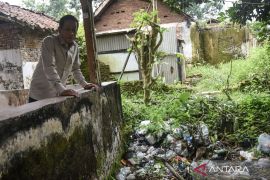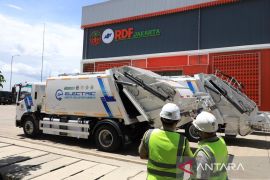Nurofiq stated that the incident resulted in over 150 deaths and devastated two villages due to the massive accumulation of waste.
"It has been 20 years since this tragedy occurred, yet it seems that no one has been able to remind us all to improve waste management across Indonesia. This tragedy should serve as a collective call to action," he remarked here on Saturday.
He stressed that Cimahi should become a national model for waste management, as the Leuwigajah disaster prompted the enactment of Law Number 18 of 2008 on Waste Management.
According to Nurofiq, this law marks an important step in regulating waste management responsibilities, which earlier lacked a clear legal basis.
"Before, no one had a clear mandate for waste management. However, since the enactment of Law Number 18 of 2008, that responsibility is now clearly assigned to the district heads and mayors," he elaborated.
Furthermore, he highlighted that National Waste Care Day (HPSN), observed annually on February 21, should also serve as an opportunity to increase public awareness of the importance of proper waste management.
He specifically identified markets as one of the sources of waste, highlighting the need for a national movement to clean up waste in markets as part of the National Waste Care Action 2025.
"We will instruct all levels of the environment office, both at the provincial and district/city levels, to periodically monitor waste management in markets throughout Indonesia," he affirmed.
Related news: Environment minister pushes for waste management roadmap completion
Related news: Govt to shut 306 open dumping sites to protect environment
Related news: Two ministers ink MoU on waste management
Translator: Rubby, Kenzu
Editor: Primayanti
Copyright © ANTARA 2025












